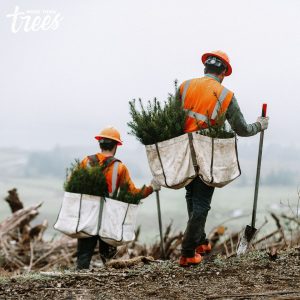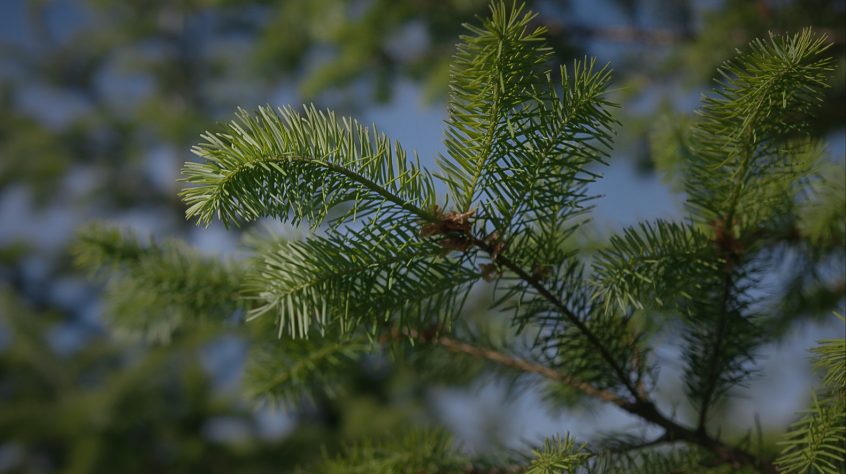 Sustainably managed working forests sequester a lot of carbon. How much you ask?
Sustainably managed working forests sequester a lot of carbon. How much you ask?
For the first time, Rayonier has released a report that provides a clear accounting of just how much of its own sustainable forestry business has helped remove CO2 gas from the atmosphere. According to the report, Rayonier’s measured timberland assets sequestered an estimated 5.7 million metric tons net of CO2in 2019. The carbon report took into account all of the direct and indirect carbon emissions related to Rayonier’s 2019 forestry operations to come up with the final amount.
According to David Nunes, Rayonier President and CEO:
“As a company whose core business is maintaining healthy ecosystems that support both sustainable forestry and its associated carbon sequestration benefits, we recognize the importance of protecting the climate and our natural environment. Rayonier’s business model provides a natural climate change solution: our trees remove carbon from the atmosphere during their growth cycle, and after harvesting, a significant portion of this carbon remains stored for an extended period of time within downstream wood products. Our inaugural Carbon Report demonstrates the important role that working forests play in fighting climate change.
This report reflects our unwavering focus on improving our sustainability reporting, as well as our long-standing commitment to best-in-class disclosure and transparency. Today marks the next step in our commitment to protect the planet by capitalizing on our unique ability to drive positive climate impacts. We will continue to ensure that we are part of the global solution to addressing climate change, and we look forward to further engagement on this topic with our shareholders and other stakeholders going forward.”
The report, a description of the actual 2019 harvest volume, underscores just how working forests are a natural solution to climate change. It’s a message that Washington Forest Protection Association (WFPA) and its members have championed for some time as policy makers look for ways to address global warming. And other corporations unrelated to the forestry sector are recognizing the critical role of sustainably managed forests in reducing greenhouse gases from the atmosphere.
Last year, 48 environmental, conservation and forest business leaders across the country recognized that private working forests and forest products is an important part of mitigating climate change. Among the signatories are WFPA members Green Diamond Resource Company, Hancock Natural Resource Group, Port Blakely, Rayonier, Sierra Pacific Industries and Weyerhaeuser Company.
And last month, Green Diamond Resource Company announced the sale of a quarter million tons of carbon removal credits to Microsoft, making it a “significant part of Microsoft’s Fiscal Year 2021 carbon removal portfolio.”
Said Douglas Reed, Green Diamond president:
“Microsoft’s work is really groundbreaking in its recognition of the importance of removing carbon dioxide from the atmosphere, not just reducing emissions. We are delighted to be able to offer carbon removal credits to Microsoft as they work to become carbon negative by 2030. As Microsoft’s work showed, forests play a crucial role in tackling climate change.”
Incorporating the sustainable forestry sector as part of a comprehensive climate policy makes sense. Trees naturally remove greenhouse gases from the atmosphere and retain that carbon. Last year, Washington state lawmakers recognized the forestry sector as an important part of the state’s response to greenhouse gasses when Gov. Jay Inslee signed into law the Forest Products Sector Carbon Bill – HB 2528 – which distinguishes the private forestry sector as part of the state’s overall climate solution.
Along with sustainably managed working forests, the forestry sector produces wood products that store carbon long after the trees are harvested and retain that carbon within the end-use forest product throughout the wood product’s lifespan. These wood-based products provide an added benefit when used in place of items that require more energy and create more fossil fuel emissions to produce like plastic, concrete and steel.
The cycle of growing CO2-absorbing trees, harvesting and replanting for a future harvest decades from now is why working forests will continue to be important to Washington’s environment, economy and way of life.
